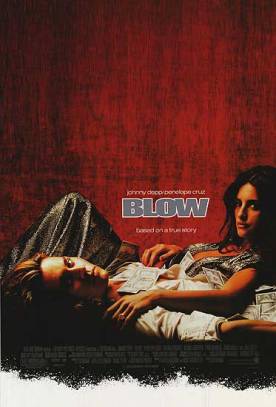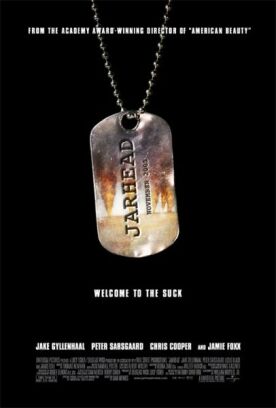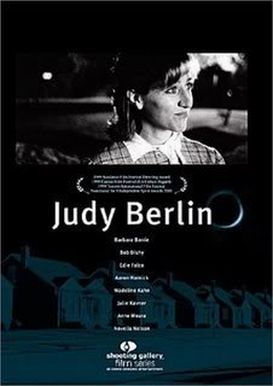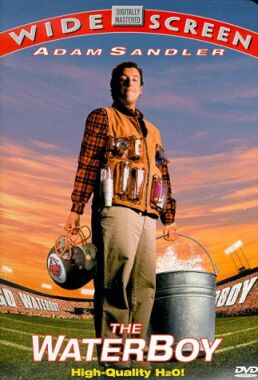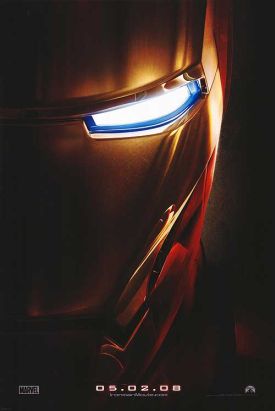Blow
If, as I believe, the new media aristocracy is essentially the aristocracy of feeling, then Johnny Depp is the crown prince. Was ever a face more perfectly constructed to express our turn-of-the-century ideal of a fine vulnerability, a noble sensitivity to every emotional breeze that ripples its surface? Unfortunately, with looks like his there are certain kinds of roles he should not be playing, and one of them is the kind of role he is playing in Ted Demme’s Blow. Reading between the lines of his career, I guess that Mr Depp is himself not entirely a stranger to illegal narcotics, so it is not surprising that he would undertake the job of endowing a big-time cocaine importer with his patented brand of little-boy lovability. But unless you are a very heavy-duty libertarian or a drug dealer yourself, you are unlikely to find much to love about George Jung, now serving a life sentence in the federal pen, whose real-life story was written by Bruce Porter and adapted for the screen by Nick Cassavetes and David McKenna.
To give him his due, Mr. Depp probably comes closer to making Mr Jung a sympathetic character than any other actor in Hollywood could do. It helps that his mother (Rachel Griffiths) is a bitch and his first beloved and drug-dealing partner (Franka Potente) dies, and his second beloved (Penelope Cruz) is a bitch who won’t allow him access to his beloved daughter, and all his other drug-dealing partners betray him. The guy’s a bona fide victim in terms of his human relationships, I suppose, but then you’ve got to kind of wonder if you could reasonably expect anything else when most of your relationships are with drug-dealers and drug-dealers’ molls? You may be skeptical about America’s drug laws, as I am, but that doesn’t mean you have to be credulous about the decency or honorability of those who live by violating the law.
But there is something in the Hollywood soul that is deeply shocked when bad things happen to people who live only for themselves and their appetites. When the young George Jung arrives in California from Boston in the 1960s, he promptly pronounces the place—or rather the beach culture of its youth—a “paradise” of easy sex and drugs. “The women were beautiful and they all seemed to share the same occupation,” his voiceover informs us as a succession of gorgeous beach-bunnies seductively claim to be stewardesses. “And everyone was getting stoned.” Soon after, when he and his friends have established an international marijuana-smuggling operation, the voiceover adds: “It was a great time in our lives. The seven of us were like a family. We worked hard, we played hard; we didn’t have a care in the world. It was perfect.”
Traditional culture, of course, would instantly have spotted the fattest of fat targets in the hubris of such announcements, but here we are meant to feel indignation when paradise doesn’t live up to its billing. How dare this sun-drenched, sybaritic idyll turn out to be an illusion! In fact, so far as the film is concerned it’s not really an illusion at all. Paradise would have continued to be paradise if only it weren’t for a bit of illness or bad luck, or a treacherous friend here and there. Like the Bourbons, George Jung has learned nothing and forgotten nothing and is apparently whiling away his declining years in prison regretting nothing but that life didn’t continue on this happy course forever.
There are only two brief moments of self-detachment here. The first comes during a brief scene after George’s first arrest for smuggling marijuana when he appears before a dour-looking female judge in Chicago—the only representation in the film, by the way, of what has obviously been an extensive involvement with the criminal justice system—and loudly proclaims that he doesn’t think he did anything wrong. “I crossed an imaginary line with some plants,” he says, and quotes Bob Dylan at her. “‘It ain’t me, babe, it ain’t me you’re looking for.’ You follow?” Needless to say, the judge does not follow. But if George is acknowledging a fault here, it is only the fault of youthful rashness, and the news that follows immediately after, that his girlfriend is dying, returns him once again to the status of heroic victim.
The second instance, where he seems for just a moment to feel remorse comes when his much-loved father, played by Ray Liotta, lodges a characteristically feeble and timid protest that his son has turned out to be an internationally wanted criminal. “I’m not mad,” he says. “I just don’t understand what you’re doing. I don’t understand your choices.”
George can think of nothing to reply but “I’m great at what I do.”
“Let me tell you something, George,” dad replies. “You’d have been great at anything.”
If the sensitivity of the film were anything like as great as is advertised by the sensitive map of Johnny D., this line would be truly lacerating. Instead it comes quite early on and makes less of an impression than what can only be described as the boastful voiceovers recounting the ups and downs of George’s subsequent career. In 1976, he tells us, “cocaine exploded on the American culture like an atomic bomb. Everyone was doing it. I mean everyone”—though of course he doesn’t mean everyone. “We invented the marketplace. In fact, if you snorted cocaine in the late seventies or early eighties, there was an eighty five per cent chance it came from us.” What a guy! Thus the picture gives the impression of constantly trying and constantly failing not to be the story of a great American entrepreneur, a Horatio Alger hero for our time. Just being sensitive, it turns out, is not enough.
Well, we can all agree with that.
Discover more from James Bowman
Subscribe to get the latest posts to your email.

